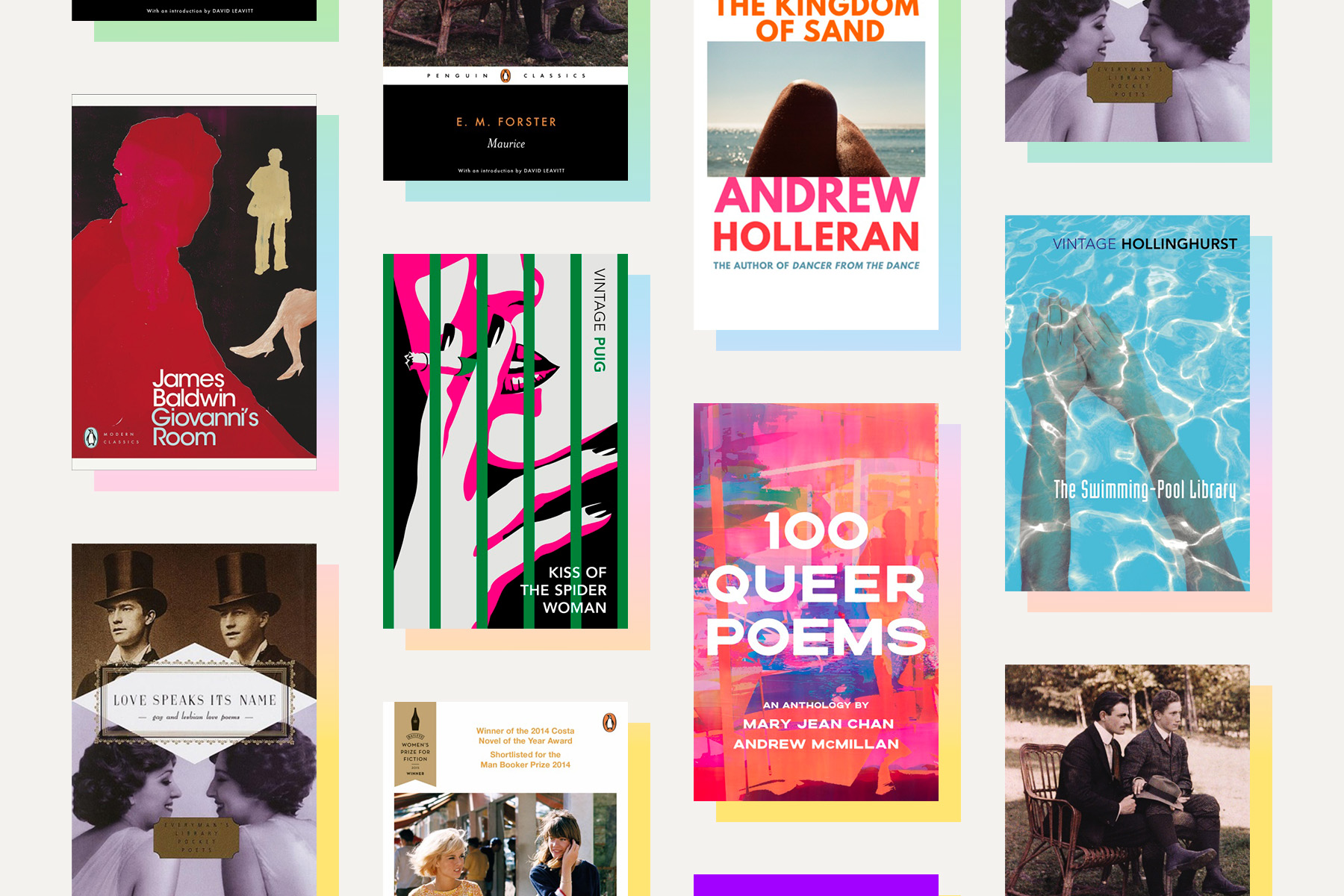Brilliant LGBTQ+ books you may not have discovered yet

Books have the power to make you feel like you belong to something bigger, and that's particularly relevant to LGBTQ+ literature. These are groundbreaking books that celebrate otherness and queerness, and make you feel a part of something. Most importantly, they are about love. They are about being utterly and uniquely yourself.
This following list of must-read LGBTQ+ fiction and non-fiction doesn’t seek to provide a detailed account of the queer canon, but rather to give you a starting point, or an ‘I need to read that again’ moment, or simply to remind you that there are lots of other people in this world who felt the same strange kick in the gut when they read Giovanni’s Room, or Genet, or Hollinghurst for the first time, or who recognised the oddly liberating sorrow of Jeanette Winterson’s coming-out-gone-wrong in Why Be Happy When You Could Be Normal?, or enjoyed the comforting company of community in the inhabitants of Armistead Maupin’s San Francisco.
To nab a phrase from Allen Ginsberg, we’re "putting [our] queer shoulder to the wheel", and we’d very much like for you, wherever you are in your journey, to join us.
Fiction
"She thought of people she had seen holding hands in movies, and why shouldn't she and Carol?"
Patricia Highsmith originally published her 1952 work under the pseudonym ‘Claire Morgan’, using an alias as she didn’t wish to be branded a “lesbian-book writer”. Carol depicts the relationship of the eponymous heroine, a bored suburban housewife, and Therese Belivet, a young woman living in Manhattan. It is a world where lesbianism is used as a weapon in a custody battle and enough to brand a woman an unfit mother. Carol is also a deeply romantic and compelling gay love story with an unprecedentedly nuanced – perhaps even happy – ending.
You might also like:
- The Well of Loneliness by Radclyffe Hall
- Rubyfruit Jungle by Rita Mae Brown
- Why Be Happy When You Could Be Normal? by Jeanette Winterson
Middlesex by Jeffrey Eugenides (2002)
Vast themes spill from the pages of Middlesex, which spans generations, cultures and genders. It is at once a bildungsroman, a ‘great American novel’, and a modern Greek Myth. Middlesex is the tale of three generations of a family, and how they deal with a mutated gene which provides them with female characteristics. The protagonist, Cal Stephanides (aka Calliope), is intersex and moves through their world like a kind of modern-day Orlando. This is a transformative novel about transformation.
You might also like:
- The Days of Anna Madrigal by Armistead Maupin
- The Passion of New Eve by Angela Carter
Poetry
Memoir, essays and non-fiction
The Thief's Journal (Journal du Voleur) by Jean Genet (1949)
"Betrayal is beautiful."
This part-fictional autobiography charts the author's journey through Europe in the 1930s. The novel is structured around a succession of love affairs and forays into male prostitution between the protagonist/author and a number of characters, from a policeman to a con man, a pimp to a criminal. It is widely considered to be Jean Genet’s greatest work. Dedicated to Sartre and Simone de Beauvoir, Genet described it as a doctrine on ‘the pursuit of the impossible nothingness.’
You might also like:
- The Argonauts by Maggie Nelson
- Genet by Edmund White